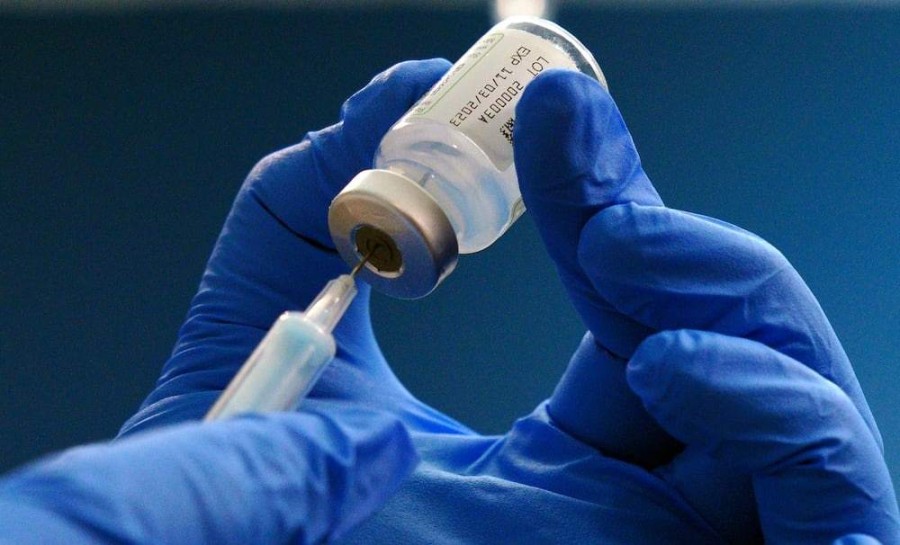Man in Germany receives 217 Covid-19 vaccines
10 March, 2024

A man in Germany who chose to have 217 Covid-19 vaccinations has become a focal point for research into the effects of excessive immunisation on the human body.
The unique case has offered insights into the resilience and adaptability of the immune system when subjected to repeated vaccine doses.
The man went far beyond conventional medical advice, pushing the boundaries of what is known about vaccine tolerance and immune response. Researchers did not reveal how he was able to gain access to so many vaccine shots.
German man gets 217 Covid shots, spurs research. His immune system stays strong, with higher antibodies and T cells. Study in The Lancet finds no harm, but caution urged in generalizing. Standard three-dose regimen still recommended.
There is official evidence of the 62-year-old man having 134 Covid-19 vaccines of eight different types over a nine month period, although he claims the amount to be 217 in total over 29 months. The majority of the over 60 million people in Germany adhered to the standard protocol of receiving just three shots.
“We became aware of this case via newspaper reports back in 2022,” Dr Kilian Schober from the Institute of Microbiology – Clinical Microbiology, Immunology, and Hygiene at Friedrich-Alexander-Universitat Erlangen-Nurnberg told The National.
“For us it was clear that this represented a unique chance to investigate the consequences of hypervaccination on the human immune system,” he said. This initial spark of interest led them to extend an invitation to the man who lives in Magdeburg for a series of tests. “He was very interested in doing so,” Dr Schober added. The scientific community had previously speculated on the potential consequences of what has been termed 'hypervaccination'.
Concerns were raised that excessive exposure to vaccine antigens might induce a state of fatigue in immune cells, potentially compromising their ability to respond effectively to pathogens.
The researchers embarked on a comprehensive analysis of his immune response, utilising blood samples collected over several years.
Not only did his immune system remain fully functional, but certain immune cells and antibodies against SARS-CoV-2 were present in considerably higher concentrations than observed in people who had received a standard three-dose vaccination regimen.
The results were published in the journal The Lancet Infectious Diseases.
The study revealed that the man's T-effector cells, vital components of the immune system's arsenal against viruses, were abundant and potent.
“The test person even had more of these compared to the control group of people who have received three vaccinations,” Katharina Kocher, one of the leading authors of the study, said.
Additionally, the researchers found no indication of a diminished immune response. On the contrary, the immune system's performance was exemplary, with memory T cells, which can develop into effector cells as needed, present in healthy numbers.
There was also a significant increase in antibodies against SARS-CoV-2 following his 217th vaccination, indicating that his immune system continued to respond vigorously to each new vaccine dose.
“High levels of antibodies and T cells could be expected after hypervaccination,” Dr Schober said.
“Of note, the quality was not affected, indicating that hypervaccination did not have a strong positive or negative impact on the immune system. In a way, this points to the robustness of our immune system.”
The comprehensive investigation also extended to the immune system's capacity to combat other pathogens, with tests indicating no compromise in its overall effectiveness.
“Our test case was vaccinated with a total of eight different vaccines, including different available mRNA vaccines,” Dr Schober said, highlighting the broad spectrum of vaccines administered without triggering noticeable side effects.
This aspect of the study underscores the vaccines' tolerability and the immune system's adaptability to various vaccine formulations.
However, the researchers cautioned against generalising the findings from this singular case to the wider population.
“He did not experience any side effects. However, it must be stressed that this is a single case and generalisability to a larger group of people is questionable,” Dr Schober said.
“Current research indicates that a three-dose vaccination, coupled with regular top-up vaccines for vulnerable groups, remains the favoured approach. There is no indication that more vaccines are required,” he clarified.
Source: www.thenationalnews.com
